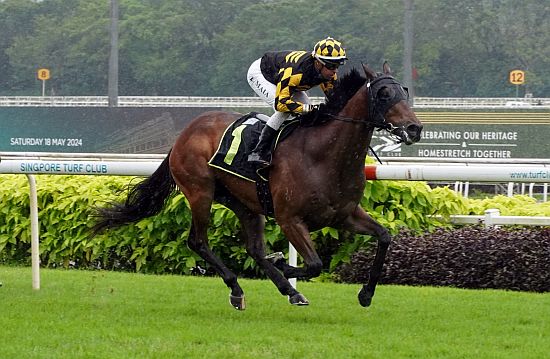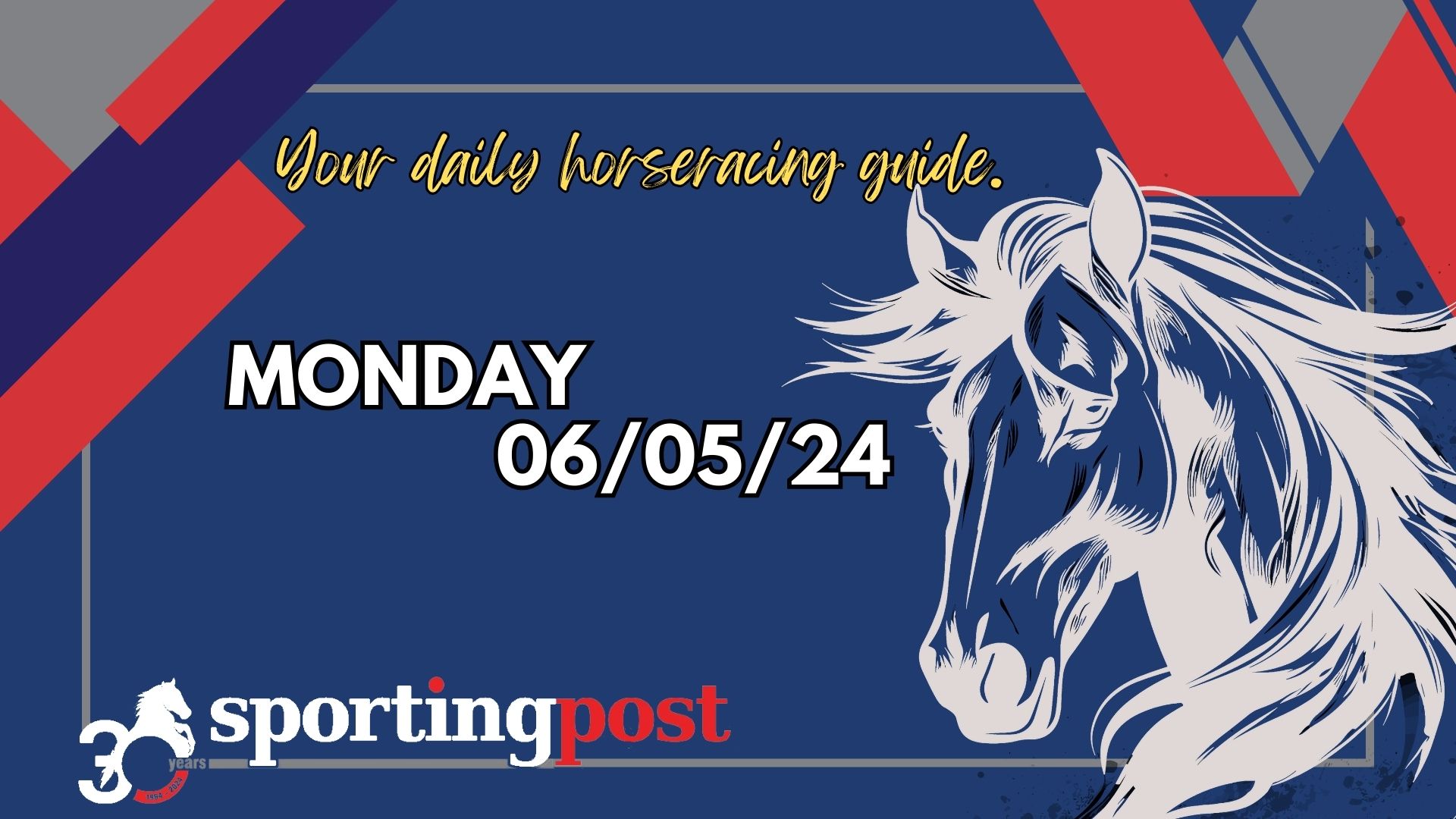In a ruling on 23rd November, just four days before inspections commence at Tattersalls December Mare Sale in Newmarket, England, the State Vet declared that in-foal broodmares purchased at the sale, a rich source of fresh blood at various budgets for South African breeders over the years, would be unacceptable for the regular January flight to Cape Town unless in foal no earlier than 240 days before the flight scheduled for 20th January.
That would mean a last covering date of no earlier than 26th May which is very late European time, but for safety’s sake about 235 days i.e. early June in case the flight were to be delayed a few days. In other words, except for a tiny handful, the in-foal mares in this traditionally attractive catalogue – with a softish market and a strong rand – are suddenly off limits to South African breeders.
A nice High Chaparral colt out of a Red Ransom mare purchased in utero last December for a fraction of what later became his sire’s high covering fee is now romping around a farm in the Western Cape. His dam, visiting Silvano, could not be purchased this year.
For nearly a decade, we have been given the earliest permissible covering date just before the Mare Sale – usually between 25th April and 5th May based on quarantine commencing about 15th December for a flight leaving 15th January. For several years, dispensations were routinely available for earlier dates, even as early as 10th April and often 20th-30th April. Last year, we were warned to be more cautious as to dispensations. Auction purchases could be made accordingly following a great deal of research and inspecting. Relatively low cost keep for a week, with careful non-VAT arrangements, was in place before quarantine at selected locations in or near Newmarket.
A broad spectrum of breeders was thus able to enjoy the fruits of such imports. But this rich resource of two sets of the fresh bloodline in one animal is suddenly all but unavailable. “That wipes out more or less all the in–foal mares in the catalogue” commented a vendor enquiring as to the likely purchasing for South Africa this year.
Already having to cope with double or more than double the quarantine time and costs compared to other importing countries, We as South African breeders and enthusiastic European breeders persuaded to invest in South Africa are now disadvantaged even more in this category. The hurdles are many and various !
When the Newmarket Equine Hospital issued its updated guidelines for the long distance transport of in-foal mares, the recommended limit was 300 days in foal. The biggest traffic in in-foal mares long distance is probably between UK/Ireland and USA for stallion visits and post-Keeneland/Tattersalls sales transfers. From UK apart from customary tests there is no export quarantine at all for USA, only 48 hours going in and a two week further CEM check which can be done on many American farms. From USA to UK, there is 30 days pre-export quarantine but then straight off the plane to the farm of your choice.
Adjusting for South Africa’s import quarantine, 300 days perhaps becomes 270. In the past several years, exciting mares at all sorts of budgets have moved into South Africa in a range of pregnancy times up to 265 days in foal. Now the limit is 240 less a safety margin.
Another tightening up of SA rules since 2009 dictates that horses from Ireland or France destined for South Africa must be resident in the UK for 60 days prior to travelling, including 30 days quarantine. (There is an Irish quarantine but it is costly and involves a long trip from Ireland across two seas and the UK land mass to catch the most economical flights from Holland or Belgium to Cape Town or Johannesburg). In our case, we have ensured that weanlings and mares from Ireland going to South Africa have arrived in England well over 60 days prior to departure, and we have tried to board them on the same farm at which they will quarantine to minimise upheaval. However in the case of southern time covering in Ireland as opposed to England, this makes life very tricky if not absolutely eliminating Irish based stallions. But since there is complete freedom of movement between Ireland and UK and UK and France, is this additional SA quarantine burden enforceable?
Of course, the recent ruling does not affect fillies for stud coming in, or mares put in foal in Europe southern time – but the latter will not see their home farm in South Africa for a year after covering following one month quarantine in the UK, one month in Cape Town or Johannesburg then about eight months (until 30 days after foaling) on one of the few licensed foaling down farms which are in the Western Cape (even if the mare is destined to the Eastern Cape or KZN).
A year between covering and arriving home and a lot of costly and stressful travel? Whilst this can be made to work when the use of a particular European stallion is of paramount importance or great attraction, many would reason that a mare in foal northern time can not only get home far earlier and more cheaply but is also available for very early covering in South Africa reasonably soon after some acclimatisation. The operational cost increase in the southern time exercise is substantial – within the reach of some but not others, or in any event affecting the overall acquisition budget.
Northern time foals are an asset that will have been purchased reasonably at the sales in utero, will have precluded lengthy sterling or euro keep and vet by travelling inside their dam soon after purchase and can be raced – often successfully in spite of the foaling dates – or sold through Equimark’s enlightened approach at the Vintage. They are part of an economical package that brings new bloodlines into the country across a range of breeders. We are pleased to have been associated with many such movements, some not necessarily very costly but still generating big yearling prices at the Nationals later on.
For Europeans getting involved, the length of quarantine is not the only concern. The first 30 days in Newmarket is served in normal farm conditions, on farms or parts of farms that are segregated from the main horse population and duly licensed. 30 days quarantine on arrival in South Africa at the quarantine stations, plus the foaling down restriction, comes as a surprise and they are then keen to know about the facilities.
No sensible European breeder would presume to question AHS protocols internally and for export but they wonder what the problem is with importing mares, fillies or any sort of horse that has already done 30 days quarantine, and foals to be born months later, and marvel at how South African breeders cope.
We now strike out the in foal mare resource and watch the Australians, Indians and Japanese take what they prefer, unless keeping the mares in Europe to foal down northern time, get covered southern time and move to South Africa much later. Otherwise we in South Africa must concentrate on fillies and barren mares from the main European sales whether for quick import or to cover southern time in Europe.
Whilst there is an element of disappointment with my consultancy hat on having worked through some mares that are now off limits, these notes come from someone who is a committed SA TBA member of some years with a broodmare band currently numbering just over two dozen owned and managed. My wife and I, and our colleagues, promote our South African industry overseas as hard as we can. We see experienced overseas owners and breeders somewhat spooked by the rules governing the movement of their possible SA yearling purchases or racehorses. This, being AHS related, may be unavoidable. But cracking down on the import of mares in foal on the traditionally timed flight seems a heavy penalty for all of us.
(story by David Allan, Allan Bloodlines, UK and Cape Town)









